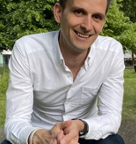In a turn of events that I can only describe as serendipitous I came across two separate interviews with modern-day philosophers within days of each other. The first was an interview on The High-Performance Podcast with Jonny Wilkinson. The second was Matthew McConaughey (on every interview show imaginable) talking about his new book Greenlights. Wilkinson sets a framework for how focus and execute on the journey. McConaughey provides a compelling philosophy for how to view the journey.
As someone who loves when two worlds collide to create something better, I love finding similarities in the ideas from one of the best rugby players and one of the best contemporary actors. I think it is worth mentioning that, while there are many differences between the two, there is a shared experience in growing up in cultures that valued a type of stoic toughness. They also both left behind safe career trajectories to pursue riskier dreams.
In his interview, Wilkinson talks about his evolution from a purely goal orientation to an approach focused on embracing the journey. The rugby world he was raised in taught players that pain was the way to gain. You aimed to achieve flow on the pitch, but not off of it. After dealing with a series of injuries and self-doubt he started asking questions about his approach. This led him to a philosophy of “being in the moment” as much as possible. He compares it to being childlike in your focus. It doesn’t change your desire to achieve, rather it changes how you go about doing it. You block out the “noise” and focus on doing your best in the moment. You will succeed and fail, so you should focus on performing your best now.
Around the same time, I came across an interview with Matthew McConaughey discussing his book Greenlights. His theory is that you face events in life and it is easy to be negatively impacted by failures and feel glorified by successes. His reflections showed him that things were not quite that simple. There are plenty of struggles (red lights) that end up being incredibly useful in pursuit of successes (green lights). Therefore, you should aim to process an event in the moment with the understanding that you don’t know the potential future value. This is particularly helpful for the challenges you face in life. I think of it as viewing events as a balance sheet- we will all have assets and liabilities. In the end they balance each other out on paper. You want to manage your balance sheet to generate the best return possible.
As much as I love these messages I am still early in my application. However, as someone who is historically externally motivated and goal focused, they are good frameworks for me. I’ve had plenty of up and downs in my career. Particularly the five years I spent on Hillgate. Running a startup on 3–6 months of runway creates a lot of stress. It is easy to live and die with every event. It certainly prevented me from being the best version of myself. While this frustrates the hell out of me, I also recognise that it led my growth. What felt like a red lights were in fact chances to get better.
I want to take the long view that I am on a journey and that there will be red, yellow, and green lights along the way. If I embrace this, then I can release myself from the pressure of achieving every goal. This allows me to focus on maximising what I’m doing in the now. I can’t help but think of my friends who’ve served in the military. They are trained to deal with adversity and remain cool. They process the moment and make decisions. They don’t worry about if they will receive an accommodation for their actions. I think you also see this quality in great consultants, religious leaders, coaches, and business leaders as well. They are in the flow.
